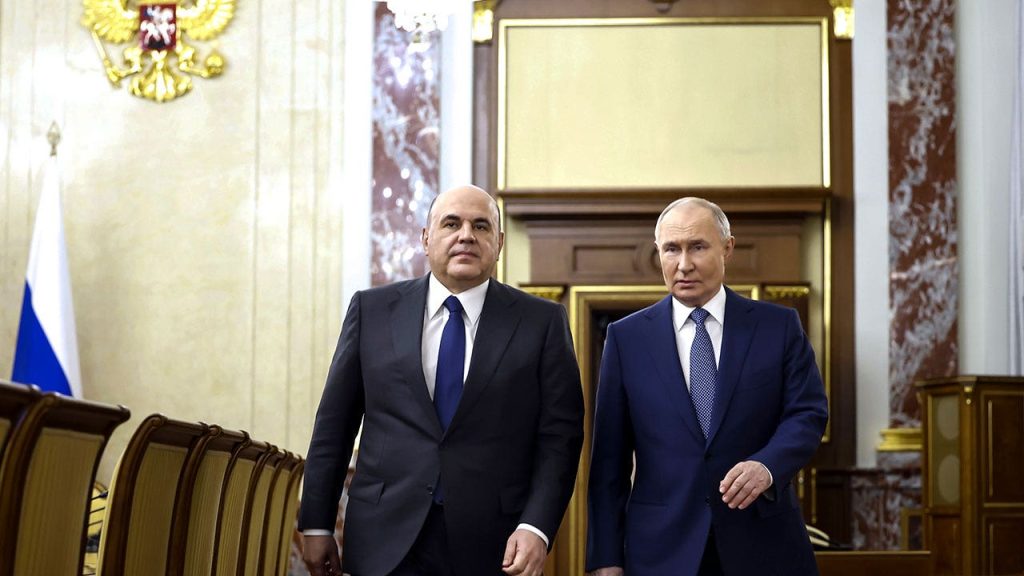Russian President Vladimir Putin reappointed Mikhail Mishustin as the country’s prime minister, a move that was widely expected to keep the technocrat in position. Mishustin and other technocrats in the Cabinet have been credited with sustaining a stable economic performance despite Western sanctions due to Russia’s role in Ukraine. Most other Cabinet members are expected to retain their positions, although the fate of Defense Minister Sergei Shoigu remains uncertain after the arrest of his top associate, Timur Ivanov, on bribery charges.
Mikhail Mishustin, who previously held the position for four years, maintained a low political profile by steering clear of political statements and avoiding media interviews. Putin, in line with Russian law, submitted Mishustin’s candidacy to the State Duma, which is set to consider it during a session. Under constitutional changes approved in 2020, the lower house approves the candidacy of the prime minister, who then submits Cabinet members for approval. Despite supposed empowerment of parliament, the procedure is widely seen as pro forma due to Kremlin control over the body.
The arrest of Timur Ivanov, the deputy defense minister responsible for military construction projects, was viewed as an attack on Defense Minister Sergei Shoigu, who has faced criticism for the Russian military’s setbacks in Ukraine. Shoigu has been the target of scathing attacks from mercenary chief Yevgeny Prigozhin, who demanded Shoigu’s ouster along with the chief of the General Staff, Gen. Valery Gerasimov. After Prigozhin’s death in a suspicious plane crash, seen as the Kremlin’s retaliation, Shoigu seemed to solidify his position. However, Ivanov’s arrest has exposed Shoigu’s vulnerability as the political infighting within the Kremlin continues.
The stability of the Russian government, despite internal power struggles, is crucial as the country faces ongoing economic challenges due to Western sanctions and geopolitical tensions. Mishustin and other technocrats in the Cabinet have played a key role in sustaining the country’s relatively stable economic performance, providing a sense of continuity amid political changes. The reappointment of Mishustin as prime minister signals Putin’s commitment to maintaining a steady hand in government leadership.
The fate of Defense Minister Sergei Shoigu remains uncertain as the Kremlin’s internal political infighting continues to unfold. The arrest of his top associate, Timur Ivanov, on bribery charges has raised questions about Shoigu’s position within the government and his relationship with President Putin. The complexity of Russian politics, with its mixture of power struggles, personal ties, and external pressures, adds a layer of unpredictability to the country’s leadership dynamics.
As the State Duma considers the reappointment of Mikhail Mishustin and other Cabinet members, the future direction of Russian governance remains uncertain. The balance between technocratic expertise and political maneuvering will play a significant role in shaping the country’s economic stability and geopolitical positioning. The ongoing developments within the Kremlin reflect the broader challenges facing Russia as it navigates domestic and international pressures, highlighting the importance of continuity and strategic decision-making in government leadership.


